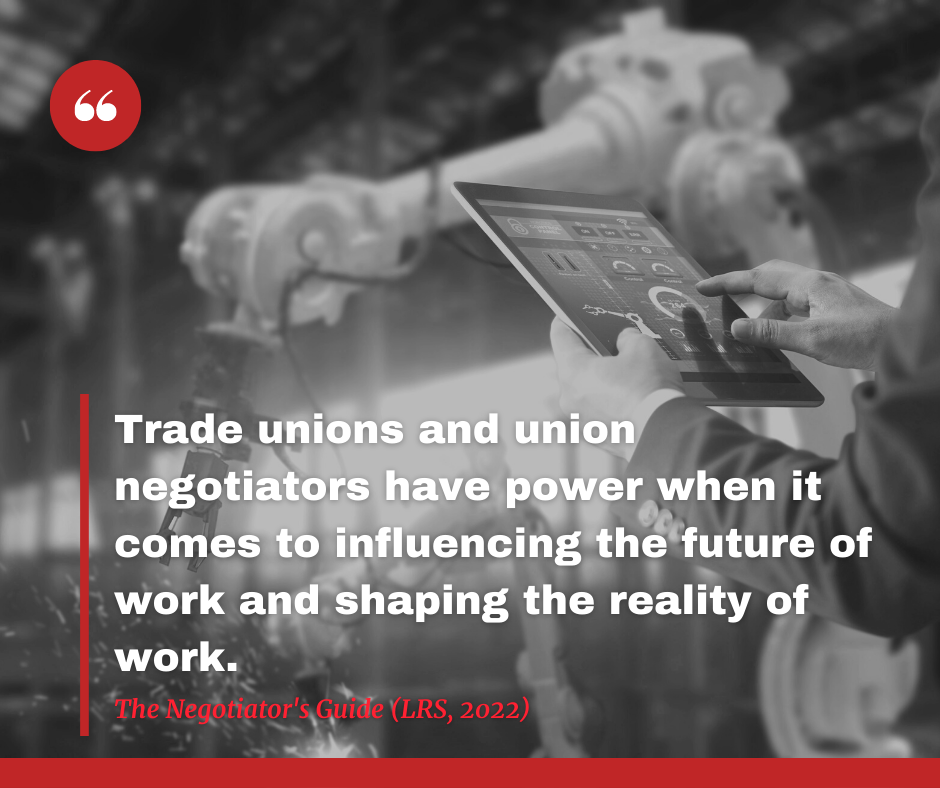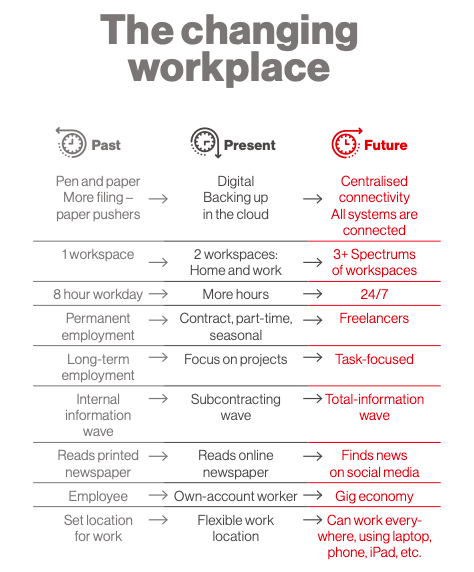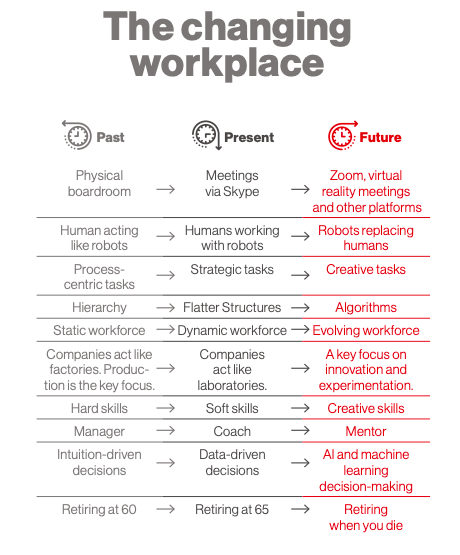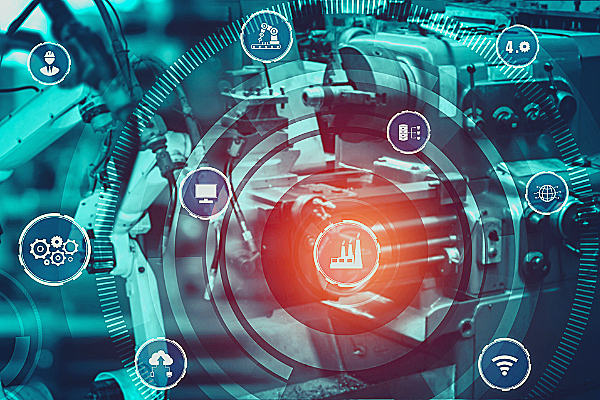What do we mean by ‘industry 4.0’, ‘future of work’, ‘fourth industrial revolution and ‘gig economy? Know the key terms in shaping and negotiating the future of work:
The Future of Work
This term is often used as a blanket term to talk about all the technological and social changes affecting the world of work. The OECD defines it as “globalisation, digitalisation and other megatrends” that “bring radical shifts to how we live and work”.
Within this framework, we can ask questions about what skills are needed for jobs, the quality of these jobs, the social assistance available should we be unable to work and what role we play in shaping these outcomes.

Fourth Industrial Revolution (4IR)
A technological or industrial revolution refers to a time period where technologies are replaced with new technologies, often in a short period of time. This causes sudden changes in society. These trends are called ‘disruptive’ because they disrupt and change the status quo. We are currently in the fourth industrial revolution.
The first industrial revolution centred on steam power and mechanisation. The second industrial revolution was based on electricity and assembly line production techniques. The third industrial revolution involved the use of electronics and information technology to automate production.
The fourth industrial revolution can be described as the advent of “cyber-physical systems” involving new capabilities for people and machines. While these capabilities rely on the technologies and infrastructure of the Third Industrial Revolution, the Fourth Industrial Revolution represents entirely new ways in which technology becomes embedded within societies and even in our human bodies.
Industry 4.0
Four major components:
- Cyber-physical systems: A computer system in which a mechanism is controlled or monitored by computer-based algorithms (a set of rules for a set of operations).
- Internet of things (IoT): The network of physical objects, or “things,” that are embedded with sensors, software and other technologies for the purpose of connecting and exchanging data with other devices and systems over the Internet.
- On-demand availability of computer system resources
- Cognitive computing: In general, the term cognitive computing has been used to refer to new hardware and software that mimics the functioning of the human brain and helps to improve human decision-making.
The Gig Economy
A gig economy is a labour market system in which temporary positions are common and organisations contract with “independent” workers for short-term engagements. The gig economy is usually understood to include chiefly two forms of work: “crowd work” and “work on-demand via apps”. Examples include Uber, Airbnb and Fiverr. Domestic workers often work on a gig basis, whether placed through a digital platform or word of mouth.


Source: The Negotiator’s Guide, LRS (2022)
Also read:
Six bargaining strategies for the future







